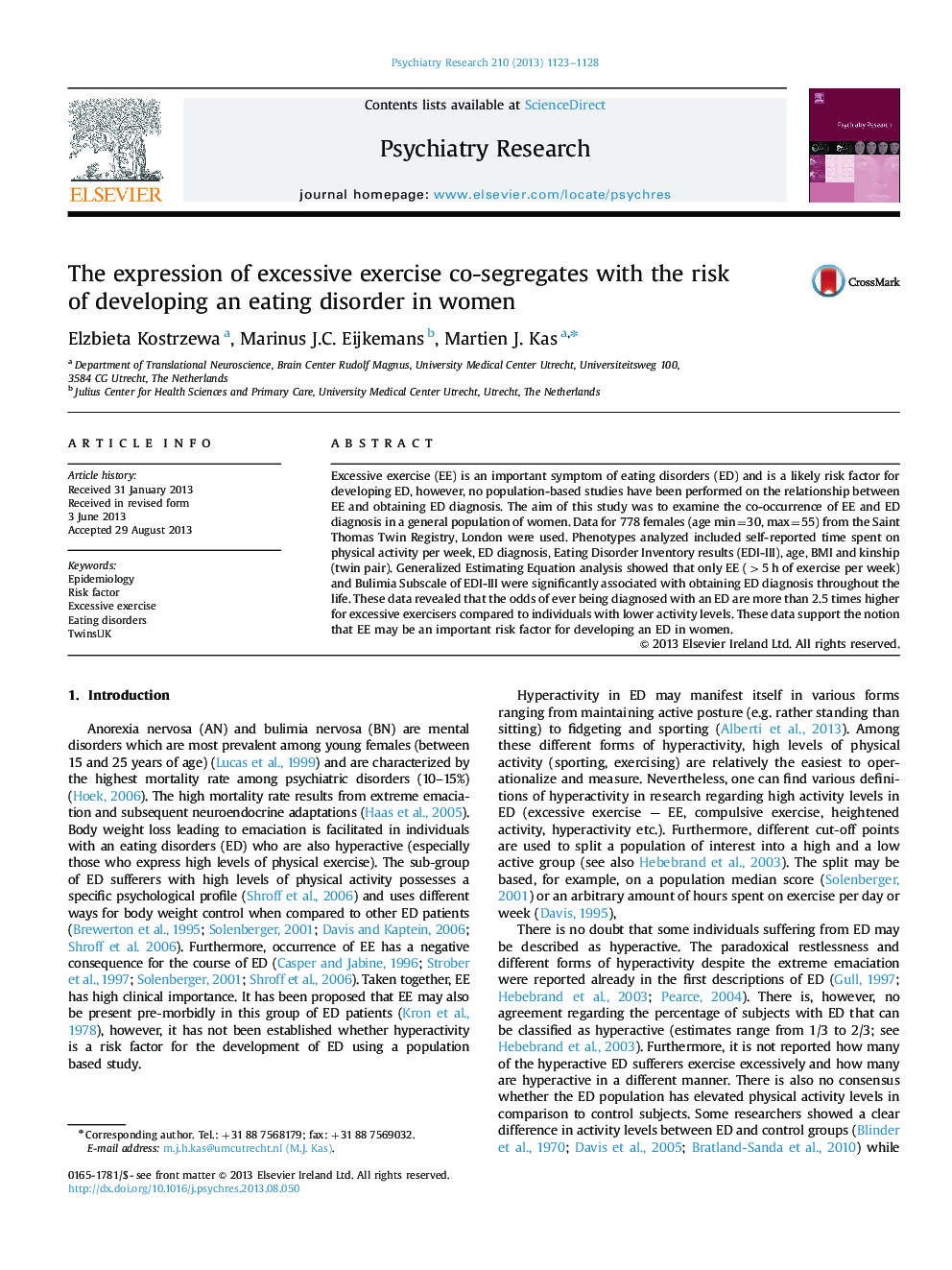| Article ID | Journal | Published Year | Pages | File Type |
|---|---|---|---|---|
| 6815622 | Psychiatry Research | 2013 | 6 Pages |
Abstract
Excessive exercise (EE) is an important symptom of eating disorders (ED) and is a likely risk factor for developing ED, however, no population-based studies have been performed on the relationship between EE and obtaining ED diagnosis. The aim of this study was to examine the co-occurrence of EE and ED diagnosis in a general population of women. Data for 778 females (age min=30, max=55) from the Saint Thomas Twin Registry, London were used. Phenotypes analyzed included self-reported time spent on physical activity per week, ED diagnosis, Eating Disorder Inventory results (EDI-III), age, BMI and kinship (twin pair). Generalized Estimating Equation analysis showed that only EE (>5Â h of exercise per week) and Bulimia Subscale of EDI-III were significantly associated with obtaining ED diagnosis throughout the life. These data revealed that the odds of ever being diagnosed with an ED are more than 2.5 times higher for excessive exercisers compared to individuals with lower activity levels. These data support the notion that EE may be an important risk factor for developing an ED in women.
Related Topics
Life Sciences
Neuroscience
Biological Psychiatry
Authors
Elzbieta Kostrzewa, Marinus J.C. Eijkemans, Martien J. Kas,
